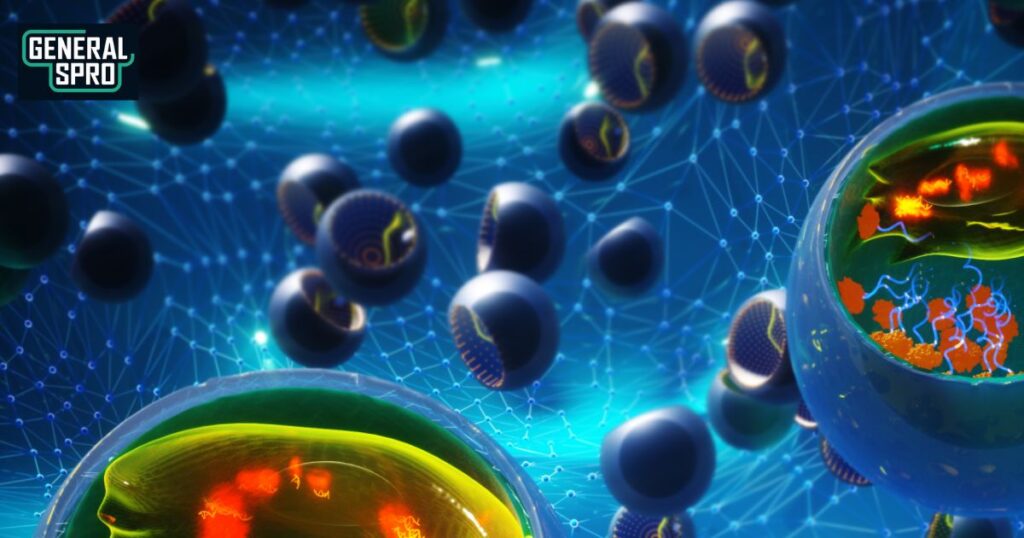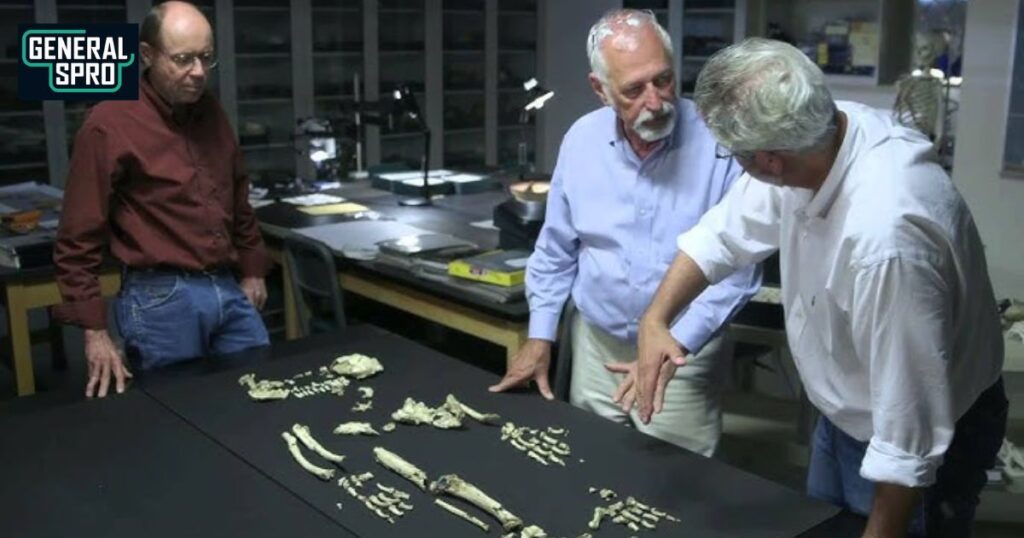Understanding Biol1S01 is crucial for students, researchers, and professionals seeking to delve deep into the intricate landscape of biological systems.
This comprehensive guide aims to provide an in-depth exploration of Biol1S01, breaking down its multifaceted nature and significance in scientific research and education.
What is Biol1S01? Demystifying a Crucial Biological Identifier

Biol1S01 represents more than just a simple course code or research identifier. It’s a sophisticated system that encapsulates the complexity of biological classification and scientific methodology. At its core, Biol1S01 serves multiple critical functions:
- Academic Standardization: A structured approach to biological education
- Research Classification: A precise method for tracking scientific investigations
- Communication Protocol: A universal language for biological researchers
Biology Course Code: More Than Just a Number
Biol1S01 transcends traditional course numbering. It’s a comprehensive framework that:
- Provides a structured approach to biological education
- Ensures consistent curriculum development
- Facilitates cross-institutional learning standards
Research Identifier: Tracking Scientific Exploration
In the realm of scientific research, Biol1S01 plays a pivotal role:
- Enables systematic project tracking
- Supports reproducibility of scientific studies
- Creates a standardized reference point for complex biological research
The Importance of Biological Coding Systems
Aspect Impact Significance
Communication Universal Language Breaks down Interdisciplinary Barriers
Documentation Precise Tracking Enhances Research Credibility
Collaboration Standardized Approach Promotes global scientific cooperation
Efficient Academic Structuring
Understanding Biol1S01 goes beyond mere classification. It represents a sophisticated approach to organizing biological knowledge, creating a robust framework for:
- Advanced learning methodologies
- Comprehensive curriculum design
- Interdisciplinary research integration
Evolution of Biological Systems and Naming Conventions
The journey of biological coding systems reflects the remarkable progress of scientific understanding. From rudimentary classification methods to complex computational approaches, Biol1S01 represents the cutting edge of scientific nomenclature.
Key Milestones in Biological Classification
- Traditional Taxonomic Systems
- Molecular-Based Classification
- Computational Biology Approaches
- Advanced Data-Driven Naming Strategies
Learning Objectives and Study Guide for Biol1S01

Students engaging with Biol1S01 should focus on the following:
- Fundamental biological concepts
- Advanced research methodologies
- Computational analysis techniques
- Interdisciplinary research approaches
Tips for Succeeding in Biol1S01
- Comprehensive Study Strategy
- Create detailed study notes
- Engage in collaborative learning
- Utilize multiple research resources
- Practical Application
- Participate in research projects
- Attend supplementary workshops
- Develop critical analytical skills
Opportunities in Science and Education
Biol1S01 opens numerous doors for aspiring researchers and students:
- Cutting-edge research opportunities
- Advanced academic pathways
- Interdisciplinary collaboration potential
Challenges and Considerations
While Biol1S01 offers immense potential, it’s essential to recognize:
- Ongoing methodological refinements
- Need for continuous learning
- Ethical considerations in biological research
Molecular Foundations of Biol1S01: Understanding Cellular Complexity
The molecular landscape explored in Biol1S01 represents a sophisticated journey into the intricate world of cellular mechanisms. Students delve deep into the fundamental processes that govern biological systems, examining how molecular interactions drive complex biological functions.
This exploration encompasses the intricate dance of proteins, nucleic acids, and cellular structures that form the core of biological research and understanding.
Advanced Computational Approaches in Biological Research
Modern biological research has been revolutionized by computational methodologies, a critical component of the Biol1S01 curriculum. Researchers and students learn to leverage sophisticated computational tools that transform raw biological data into meaningful insights.
These advanced techniques enable unprecedented levels of analysis, from genomic sequencing to complex biological modeling, pushing the boundaries of scientific understanding and research capabilities.
Ethical Considerations in Biological Investigations
Biological research demands rigorous ethical standards, a fundamental principle emphasized in Biol1S01. The course explores the complex ethical landscape of scientific investigation, addressing critical considerations such as research integrity, participant consent, and the broader implications of biological discoveries.
Students critically examine the moral responsibilities of scientific research, developing a comprehensive understanding of ethical decision-making in biological studies.
Interdisciplinary Applications of Biological Systems
Biol1S01 transcends traditional disciplinary boundaries, showcasing the interconnected nature of biological research across multiple scientific domains. The course illuminates how biological principles intersect with chemistry, physics, computer science, and environmental studies.
This holistic approach enables students to understand the broader context of biological systems and their far-reaching implications in solving complex scientific challenges.
Emerging Technologies in Biological Research
The rapid evolution of technological innovations continues to transform biological research, a key focus of Biol1S01. Students explore cutting-edge technologies such as CRISPR gene editing, advanced imaging techniques, and artificial intelligence-driven research methodologies.
These emerging technologies represent the frontier of scientific investigation, offering unprecedented capabilities for understanding and manipulating biological systems.
Global Perspectives on Biological Diversity
Biol1S01 provides a comprehensive exploration of biological diversity from a global perspective. The course examines the intricate ecological networks, evolutionary adaptations, and complex interactions that characterize life across different environments.
Students gain a nuanced understanding of how biological systems adapt, interact, and contribute to the broader ecosystem, developing a sophisticated appreciation for the planet’s biological complexity.
Statistical Analysis in Biological Research
Rigorous statistical methodologies are critical to biological investigations, a skill set meticulously developed in Biol1S01. Students learn advanced statistical techniques for analyzing biological data, understanding experimental design, and drawing meaningful conclusions from complex datasets.
This quantitative approach ensures scientific rigor and enables precise interpretation of research findings.
Biotechnological Innovations and Their Societal Impact

The Biol1S01 curriculum explores the profound societal implications of biotechnological innovations. Students critically examine how biological research solves global challenges, from medical breakthroughs to environmental conservation strategies.
This comprehensive approach helps students understand the transformative potential of biological research in addressing critical human and environmental needs.
Research Methodology and Experimental Design
Developing robust research methodologies is a cornerstone of Biol1S01. The course provides comprehensive training in experimental design, scientific protocol development, and critical analysis techniques.
Students learn to construct rigorous research frameworks, implement systematic investigation strategies, and evaluate scientific hypotheses with precision and intellectual integrity.
Future Trajectories in Biological Research
Biol1S01 offers a forward-looking perspective on the future of biological research, examining emerging trends, potential technological breakthroughs, and anticipated scientific challenges.
Students explore speculative yet evidence-based projections about biological systems, encouraging innovative thinking and preparing for the next frontier of scientific discovery. This forward-thinking approach ensures that students are equipped to contribute to and shape future biological research landscapes.
Precision Medicine: Personalized Approaches in Biological Research
Precision medicine represents a revolutionary paradigm in healthcare, emerging as a critical focus within advanced biological research methodologies. This sophisticated approach integrates comprehensive genetic profiling, advanced diagnostic technologies, and individualized treatment strategies to develop targeted interventions tailored to specific patient characteristics.
By analyzing intricate molecular signatures and genetic variations, researchers can design more effective therapeutic approaches that maximize treatment efficacy while minimizing potential side effects, marking a significant advancement in medical science.
Neurobiological Mechanisms: Exploring Complex Brain Functions
The intricate landscape of neurobiological research provides profound insights into the complex mechanisms governing brain function, communication, and cognitive processes. Advanced investigations within this domain employ sophisticated techniques like neuroimaging, molecular tracing, and computational modeling to unravel the sophisticated neural networks that underpin human consciousness, learning, and behavioral responses.
These comprehensive studies enhance our understanding of neurological systems and provide critical foundations for developing interventions for neurological disorders and cognitive impairments.
Climate Change and Biological Adaptation Strategies
Climate change presents unprecedented challenges to biological systems, driving critical research into adaptation mechanisms and evolutionary responses. Comprehensive studies explore how diverse organisms modify their physiological, genetic, and behavioral characteristics to survive increasingly unpredictable environmental conditions.
These investigations encompass multiple ecological scales, from microscopic cellular adaptations to large-scale ecosystem transformations, offering crucial insights into the resilience and vulnerability of biological systems in the face of rapid environmental shifts.
Synthetic Biology: Engineering Biological Systems
Synthetic biology emerges as a transformative field that combines engineering principles with biological research, enabling the design and construction of novel biological systems and components. Researchers leverage advanced molecular techniques to reprogram cellular functions, create artificial biological circuits, and develop innovative solutions for challenges in medicine, agriculture, and environmental sustainability.
This interdisciplinary approach represents a paradigm shift in biological research, offering unprecedented capabilities to manipulate and engineer living systems with precision and intentionality.
Quantum Biology: Exploring Quantum Mechanisms in Living Systems
Quantum biology represents a cutting-edge frontier in scientific research, investigating the potential quantum mechanical phenomena underlying biological processes. This revolutionary field examines how quantum effects might influence fundamental biological mechanisms, including photosynthesis, enzyme catalysis, and neural signal transmission.
By bridging quantum physics and biological sciences, researchers seek to uncover novel insights into the intricate, fundamental principles governing life at the molecular and cellular levels, potentially revolutionizing our understanding of biological systems.
FAQ’s
1: What is Biol1S01?
Biol1S01 is a comprehensive biological course code or research identifier that provides a structured approach to studying advanced biological systems. It encompasses multiple aspects of biological research, including academic curriculum and scientific classification methodologies.
2: Who Should Take Biol1S01?
Students pursuing advanced biological studies, researchers interested in comprehensive biological methodologies, and professionals seeking an in-depth understanding of scientific classification systems would benefit from Biol1S01. The course provides critical insights into modern biological research approaches.
3: What Are the Key Learning Objectives?
The primary learning objectives include:
- Understanding advanced biological mechanisms.
- Developing research skills.
- Gaining comprehensive knowledge of molecular and computational biological techniques.
Students will learn critical analytical approaches and advanced research methodologies.
4: How Challenging Is the Biol1S01 Curriculum?
Biol1S01 is designed for advanced learners and presents a rigorous, comprehensive exploration of biological systems. The curriculum demands strong analytical skills, scientific curiosity, and a commitment to understanding complex biological concepts and research methodologies.
5: What Career Opportunities Does Biol1S01 Support?
Graduates can pursue careers in research institutions, biotechnology companies, medical research facilities, academic institutions, and pharmaceutical industries. The course provides a robust foundation for advanced scientific research and professional development.
6: Are There Prerequisite Requirements?
Most institutions require a strong basic biological sciences, chemistry, and mathematics background. Advanced computational skills and a fundamental understanding of scientific research methodologies are typically recommended for successful participation.
7: How Does Biol1S01 Differ from Traditional Biology Courses?
Unlike traditional biology courses, Biol1S01 offers an interdisciplinary approach, integrating computational techniques, advanced molecular research, and comprehensive scientific methodologies. It emphasizes critical thinking and innovative research strategies.
8: What Resources Are Recommended for Biol1S01 Preparation?
Students should utilize advanced scientific journals, computational biology resources, research databases, and specialized textbooks focusing on molecular biology, computational techniques, and advanced research methodologies.
Conclusion
Biol1S01 represents more than a course or identifier. It’s a gateway to understanding biological systems’ complex, interconnected world. As scientific methodologies evolve, Biol1S01 will remain a critical tool for researchers, educators, and students.








